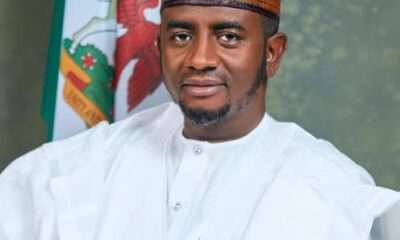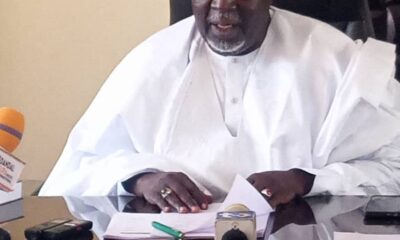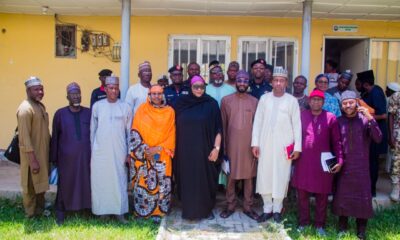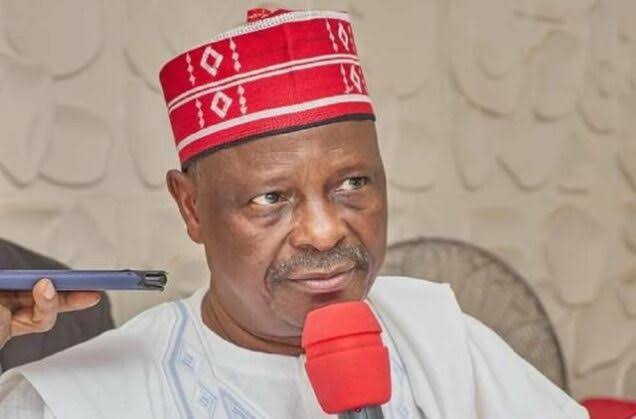Metro News
Improved budgeting, funding for Childresponsive interventions will curb poverty – UNICEF
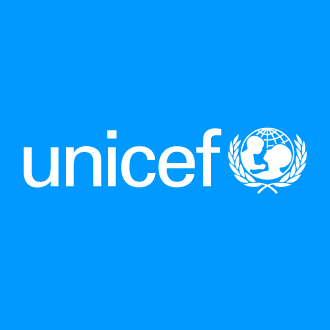
United Nations Children’s Fund (UNICEF) has informed stakeholders that improved budgeting and funding for Childresponsive interventions will help immensely toward addressing poverty in the society.
The Officer-In-Charge (OIC) Chief of Field Office of the UNICEF Bauchi, Mohammed Kamfut stated this in a goodwill message at Northeast -states Strategic Policy Dialogue on Social Budgeting for Child-Sensitive Sectors in Nigeria in Gombe yesterday.
Kamfut, said the dialogue is expected to brainstorm on how to improve the lives of children in Northeast Nigeria.
Kamfut who was represented by Dr. Yusuf Auta, Policy Specialist Bauchi Field Office of UNICEF, said the dialogue brings together a diverse group of stakeholders who are actively engaged in budget development and implementation.
According to him, the dialogue aims to collaboratively chart a pathway for adequate and sustainable financing of the social sectors in the region.
He said over the past 30 years, global efforts have consistently aimed to honor commitments to children which include taking all necessary measures to safeguard and advance their rights, ensuring they have the resources to survive, develop, and thrive, as outlined in the Convention on the Rights of the Child.
According to him, “Since the adoption of the Millennium Development Goals at the turn of the Millennium, there has been remarkable progress in reducing poverty and enhancing the living conditions of millions of children and families”.
He however, regretted that despite the advancements, many of the world’s poorest and most disadvantaged children continue to be left behind.
UNICEF further pointed out that Poverty infringes upon children’s human rights and perpetuates a relentless cycle of
deprivation that is challenging to break without adequate support.
“It leads to numerous adverse outcomes for children, including hunger, malnutrition, poor health, and limited or no access to quality education and essential services”, Kamfut stated.
He noted that as Children grow older and remain in poverty, the impact of such deprivations
intensifies and further diminish their opportunities to reach their full potential.
“Nigeria’s population is estimated at above 205.9 million, with 49.5 percent (102million) being children aged 0-17 years”, he said.
He disclosed that similar to many African countries, children in Nigeria are disproportionately affected by poverty due to their vulnerable status in society.
This has long-term repercussions on their well-being, extending into adulthood. Despite the global urgency to address poverty, children have often been overlooked in poverty reduction initiatives.
According to the 2020 report on Multidimensional Child Poverty Analysis supported by UNICEF Nigeria, over 47 million children, or approximately 47.4 percent of Nigerian children, live in
households with incomes below the national poverty line of 137,430 Naira per year (based on the 2019 exchange rate).
He noted that the dialogue is very important to support and advocate to the Government for the
well-being of children and the population at large, hoping that at the end of the dialogue, the stakeholders will contribute immensely to the full realization of children’s rights through, among other things,. END
-

 Opinion2 days ago
Opinion2 days agoWhy Tinubu is not weaponising poverty – Ogala
-

 National News1 day ago
National News1 day agoBreaking: FG declares June 6, 9 public holidays to mark Eid-ul-Adha celebration
-
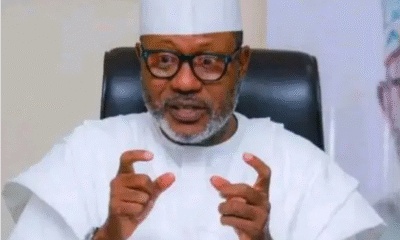
 Politics2 days ago
Politics2 days agoBreaking: Buhari’s minister dumps APC in Nasarawa ahead of 2027
-

 Politics1 day ago
Politics1 day ago2 years not enough to access Tinubu’s achievements – Onanuga
-

 Metro News1 day ago
Metro News1 day agoTension as popular Ibadan restaurant building collapses
-

 Crime and Law1 day ago
Crime and Law1 day ago“I didn’t tell my children”—79-year-old Nigerian breaks silence after U.S. exploitation
-

 Politics2 days ago
Politics2 days agoYou conspired, removed Jonathan yet nothing changed, Dickson tells Amaechi, Atiku, others
-

 Sports2 days ago
Sports2 days agoTransfer: Arsenal eye Real Madrid’s Rodrygo


